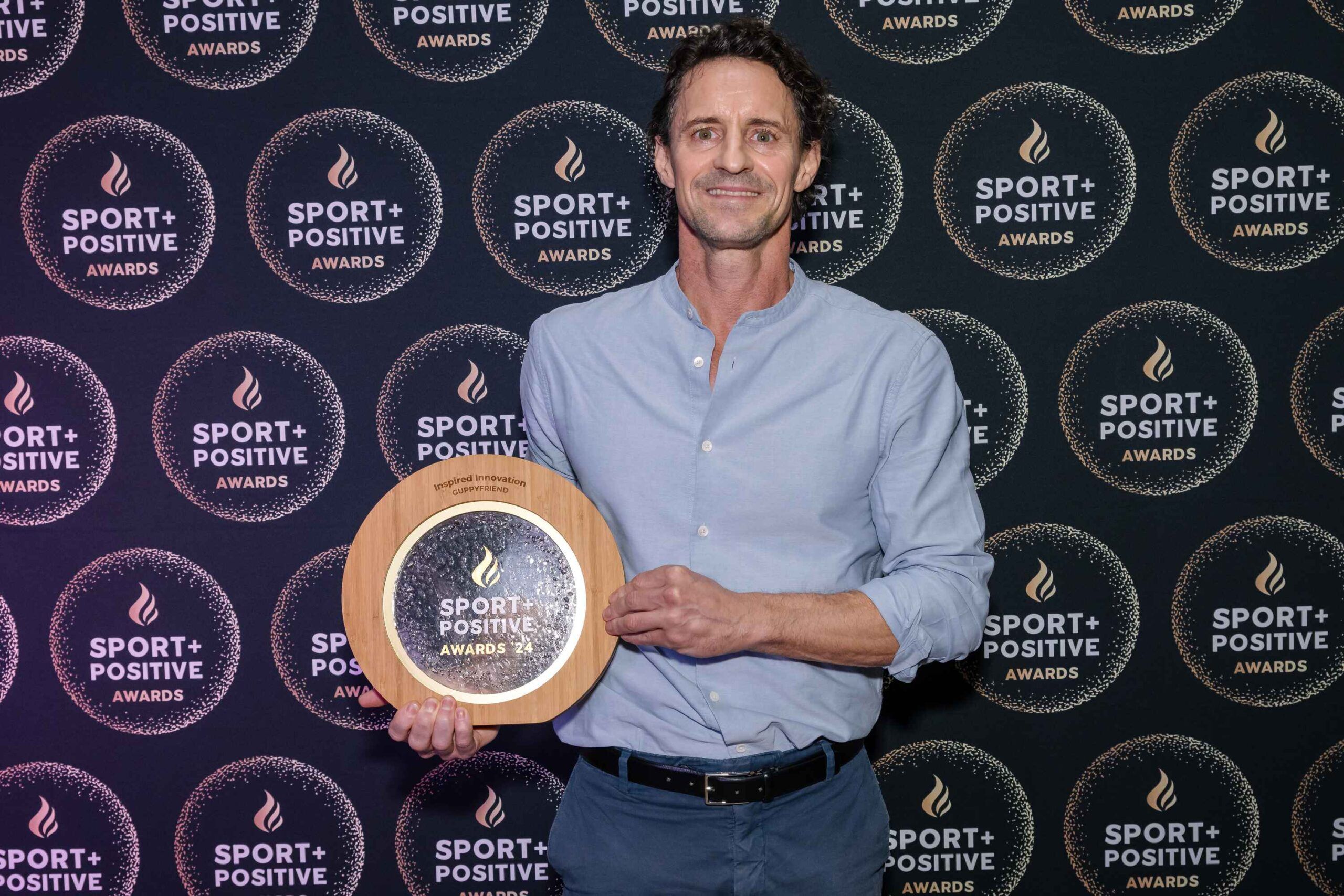
Web.de: Water filters conquer sports fields: Start-up from Leichlingen wins innovation award
Innovation does not always have to come from global cities like New York, Paris or London – forward-looking ideas also thrive in the Bergisches Land.
Like that of Oliver Spies from Leichlingen and his co-entrepreneur Alexander Nolte. They were awarded the “Sport Positive Award 2024” in the “Inspired Innovation” category in London in 2024 – for their fight against microplastics. They have developed a filter that can be used to capture microplastic particles on sports fields.
Rain and washing sportswear mean that an average of almost 3,000 kilograms of plastic from artificial turf ends up in the environment per sports field per year. The filter developed by the two men’s new brand “Guppyfriend” is simply inserted into the drains and gutters at the edge. When the entrepreneurs approached Bundesliga club VfL Wolfsburg with their product , they immediately received great recognition, because even the lawn care workers there were surprised at how much material and costs could be saved in the future.
Other clubs want to purchase filters
The fact that the idea was awarded “is of course overwhelming. Representatives from Arsenal FC and Wembley were there with us and we never thought we could actually win the prize,” said a delighted Alexander Nolte. For him, however, this award also means that the sports industry is increasingly recognizing the importance of nature conservation and is also prepared to implement innovations. Other clubs are now in the process of purchasing the filters and the German Football Association is also enthusiastic. But it is not just the big clubs that can purchase the filters. Due to their low price, every village club also has the opportunity to make its contribution to environmental protection.
But “Guppyfriend” did not come out of the blue, but has various predecessors. Oliver Spies and Alexander Nolte have known each other for a long time. Various jobs and events between 2006 and 2008 brought the two together, and since then they have shared their fascination for innovation. Together they founded the “Langbrett” community, a large community of surfers and nature lovers who are committed to protecting nature. This gave rise to the idea of having their own clothing produced. That was the first time the two men realized what role microplastics play in our world and what kind of problem it actually is. “It was immediately clear to us that we wanted to avoid plastic in our production and it doesn’t matter if our clothing doesn’t follow the next trend,” explained Nolte.
Sustainable Clothing in Stores
After a few test runs, the first T-shirts and sweaters, as well as shoes, were created. The special thing about the shoes is that they are designed in such a way that they can be returned to the ecological cycle after use and their materials can be separated again. Even though many companies claim that sustainability is not feasible, Nolte and Spies know that in most cases there are alternatives that have less of a negative impact on nature. The advertising of many products is also misleading, because even if products are labeled as microplastic-free, this can only mean that they do not contain solid plastic, but rather liquid plastic, explain the two men. Their products are now sold in three of their own stores in Berlin, Düsseldorf and Frankfurt and are part of many other retail stores, including in Cologne.
After clothing production started, “we realized that we ourselves are actually part of the problem and are not paying enough attention to how we deal with microplastics,” admits Oliver Spies. A solution had to be found, and so the “Guppyfriend” brand was born. The first tests were carried out with a wash bag in Spies’ bathroom. The bag is designed to catch the microplastics washed out of the clothing: the men want to prevent the plastic fibers that break off when washing synthetic clothing from getting into rivers and seas via the wastewater. In addition to wash bags for the home and filters for sports fields, there are now cleaning cloths, street filters, detergents and cleaning products – everything to prevent the microplastics from making it into the further cycle. Oliver Spies tests all products in his workshop in Leichlingen, as he moved there with his family five years ago. “Many people probably think at first glance that everything is totally confusing and a big mess, but actually this is my test laboratory,” said the Leichlingen resident proudly.
Read the full article here.